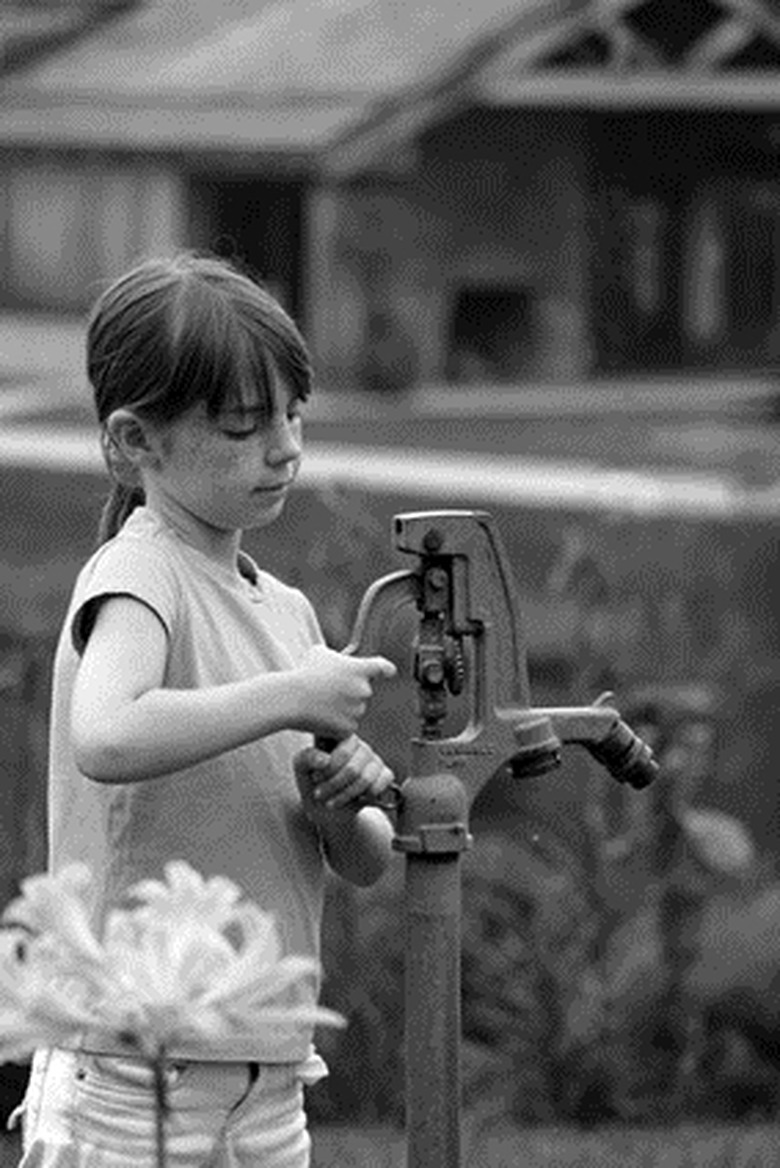How Does An Old Well Pump Work?
Old Well Pump Parts
Old well pumps are simple machines that use a system of valves and levers to move water up from a well underground. The pumps have a lever or a handle on the outside of the pump that a person pushes up and down. Inside the pump's cylinder is a piston, two valves, air and water. There is also a spout on the side of the pump.
Push the Lever Down
Push the Lever Down
When the lever on an old well pump is depressed, it pushes the piston below the level of the spout, shutting off the flow of air–like when you cover the top of a drinking straw that is in a glass of water. The top valve is shut but the action of the lever opens the lower valve. This forces water up into the space vacated by the air.
Pull the Lever Up
Pull the Lever Up
When the lever is raised, the opposite valves open and shut. The lower valve closes, trapping the water in the cylinder and the top valve opens, admitting more air, raising the water level a bit more. Repeating the push and pull on the lever increases the volume of the water in the cylinder still more. Once it reaches the spout, water gushes out.
Cite This Article
MLA
Barker, Lesley. "How Does An Old Well Pump Work?" sciencing.com, https://www.sciencing.com/old-well-pump-work-4962647/. 24 April 2017.
APA
Barker, Lesley. (2017, April 24). How Does An Old Well Pump Work?. sciencing.com. Retrieved from https://www.sciencing.com/old-well-pump-work-4962647/
Chicago
Barker, Lesley. How Does An Old Well Pump Work? last modified March 24, 2022. https://www.sciencing.com/old-well-pump-work-4962647/
